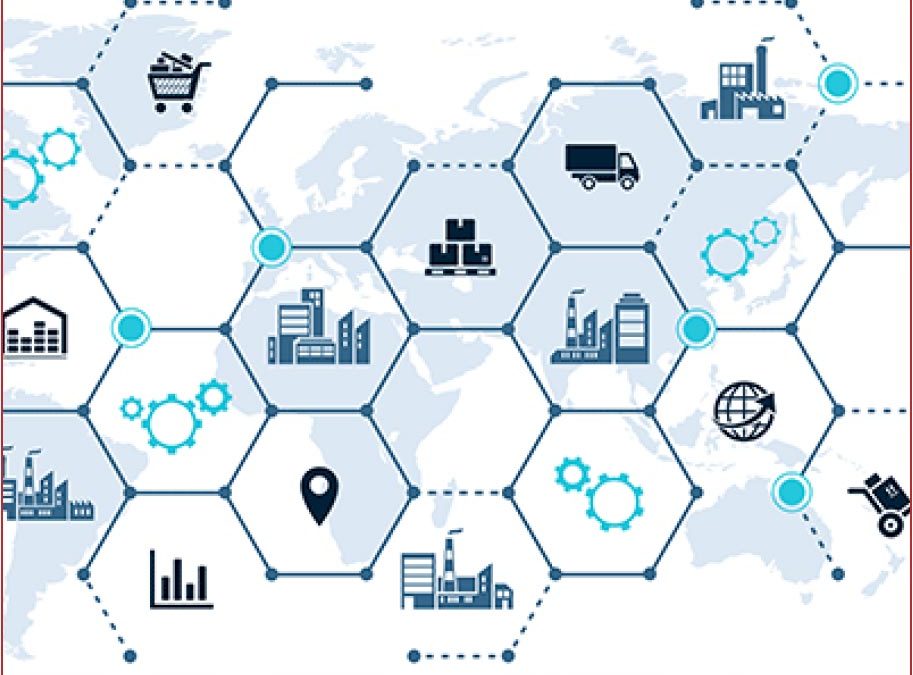The Chairman of the Indonesia Investment Coordinating Board, Thomas Lembong, urges a renewed focus on the services sectorto keep the economy growing.
Exclusive Interview: Thomas Lembong, Chairman of the Indonesia Investment Coordinating Board
Services are booming even as the global trade war disrupts economies and upends trade flows says Thomas Lembong. In a three-part exclusive series, the Chairman outlines the impact of the trade war; how Indonesia must respond and where Indonesia can compete economically in these uncertain times.
Shoeb Kagda, Founder of the Indonesia Economic Forum sat down with Thomas Lembong in a far ranging interview.
IEF: Thank you for joining us for this interview. To get started, how do see the ongoing global economic disruption underway which is fuelled by the US-China trade war; growing economic protectionism and the social and political turmoil in Hong Kong?
TL: As you know by now I’m very much a back-to-basics kind of guy. And the first order of business is to go back to that old saying “stay calm and carry on.” So I think the ructions and the events like Hong Kong or trade war, we have those kinds of ructions every decade for the last 100 years right? And we always managed to come out of them somehow, so I think we all need to stay focused, keep our eye on the ball. And for emerging markets, developing countries that ball is overwhelmingly the matter of structural reforms. So we have to continue working on the structural reforms both the hardware and the software. You know hardware like infrastructure. Software like improving our institutions, improving our public health, improving our workers’ skill levels, levels of literacy, and education. Those are the things we have to stay focused on and not get excessively distracted by all the noise hogging the headlines at any given time.
IEF: The theme for this year’s annual Indonesia’s Economic Forum is succeeding in a new competitive era. As you know over the past decade, globalization, the rise of the digital economy, Industry 4.0, its kind of upended what we call 20th century growth models. Today people are saying developing countries can no longer use the export led growth model of the past. How can Indonesia stay competitive? What do you think are the key factors that will improve on Indonesia’s economic competitiveness?
TL: Well few things Shoeb. First of all, we need to make sure we take a comprehensive view of the world. Trade wars and technology may turn upside down the global trading order. In parallel what’s happening is a worldwide boom in trade and services. Where I believe services exports are actually booming, if we only bother to look, and also have the right definition. For example, when I was a trade minister. And I went down to Australia to restart our trade agreement with Australia one of my most memorable visits was to an Australian startup called Freelancer.com
And I was startled to be told that there were already, back then—and this was four years ago—tens of thousands of Indonesians selling their digital services on the platform remotely. Services like graphics, illustration, architectural renderings, sound-editing, translation, copy-editing, you name it.
IEF: Is this one sector where Indonesia can create both economic dynamism as well as a competitive edge?
TL: Many of these services are done via the internet and on a part-time bases so in our economic data it will not be recorded as a services export, where it may show up is as a remittance flow. Where money is coming in but we have no clue what it’s being paid for. Therefore we don’t classify that as a service export. But if you look for example at the boom in video-streaming platforms like Netflix, soon to be joined by Disney+ and local versions of Netflix like Iflix in Southeast Asia, I would argue that global trade is booming, more than ever, just in a different form than what we’re used to so we don’t know to look for it.
Second thing is President Jokowi he already conveyed to World Economic Forum founder Klaus Schwab in Hanoi last year that we believe Industry 4.0 like Artificial Intelligence, Robotics, 3D-printing, trial-computing will give net job creater, not only in the medium or long term but in the short term. So if you look at the data there’s no evidence to speak of technology destroying jobs.
Just think of it as an example, think about how much technological revolution has taken place in the USA over the last 12 years. Over that time period has unemployment indeed skyrocketed because technology destroyed jobs or has unemployment gone down? It has definitely gone down to record low levels of unemployment even as technology has transformed many aspects of the American economy right? And what I believe these new technologies will do is actually take away the boring, repetitive and low-value activities from human beings. So human beings can focus on the creative, sentimental or imaginative parts of business activity which is more high value. So I believe we are entering a cycle where we will essentially throw off the low-value repetitive work and it will free us to focus on, you know, the more emotional and the more human aspects of work. And I think things that define the competitiveness of the situation are things like creativity, human touch, the ability to connect emotionally and intellectually with another human being. Social skills matter more in that sort of world because again robotics, automation amplify our or the value that we put on the human, the uniquely human things in life and business.

